March 1 stands as one of history’s most eventful days, witnessing the rise and fall of empires, groundbreaking discoveries, and moments that shaped our modern world across centuries of human achievement.

Politics and Government Events on March 1
1917 – Zimmermann Telegram Released to American Public
The U.S. government released the unencrypted text of the infamous Zimmermann Telegram to American newspapers. This German diplomatic cable proposed a military alliance between Germany and Mexico against the United States.
The telegram’s publication outraged American citizens and significantly shifted public opinion toward entering World War I. Within weeks, Congress would vote to declare war on Germany, marking America’s full entry into the global conflict.
1919 – March 1st Movement Begins in Korea
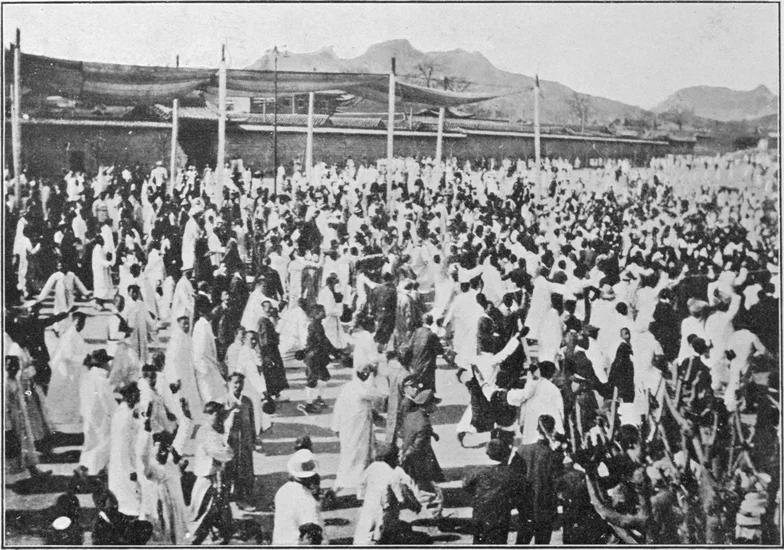
Korean independence activists launched a nationwide peaceful protest against Japanese colonial rule on this historic date. The movement began with public readings of the Korean Declaration of Independence in Seoul and quickly spread across the peninsula.
Japanese authorities responded with brutal suppression, killing thousands of protesters and arresting tens of thousands more. The movement galvanized Korean nationalism and became a cornerstone of the country’s independence struggle.
1932 – Kronstadt Rebellion Erupts Against Bolsheviks

Sailors and citizens at the Kronstadt naval base rose in armed rebellion against the Soviet government. The uprising demanded greater political freedoms and an end to the Bolshevik monopoly on power.
The rebellion represented the final major internal challenge to Lenin’s regime during the Russian Civil War period. Soviet forces would eventually crush the revolt after a brutal assault across the frozen Gulf of Finland.
1946 – Bank of England Nationalised
The British Labour government brought the Bank of England under state control through landmark nationalisation legislation. This move transferred ownership of Britain’s central bank from private shareholders to the Treasury.
The nationalisation marked a significant shift toward state control of key economic institutions in post-war Britain. The decision reflected broader socialist policies aimed at rebuilding the nation’s economy after World War II.
1961 – Uganda Achieves Self-Government
Uganda gained internal self-government from Britain and conducted its first democratic elections under the new constitutional arrangement. The milestone represented a crucial step toward full independence from colonial rule.
Milton Obote’s Uganda People’s Congress emerged victorious in the historic elections. The achievement positioned Uganda among the first African nations to transition from colonial administration to self-governance.
1992 – Bosnia and Herzegovina Declares Independence
Bosnia and Herzegovina formally declared its independence from the Socialist Federal Republic of Yugoslavia following a referendum. The declaration came amid rising ethnic tensions and the broader collapse of the Yugoslav federation.
The independence proclamation would soon trigger one of Europe’s most devastating conflicts since World War II. International recognition of Bosnian independence followed, but the country faced immediate military aggression from Serbian forces.
1941 – Bulgaria Joins Axis Powers
Bulgaria signed the Tripartite Pact, formally allying itself with Nazi Germany, Italy, and Japan during World War II. The decision placed Bulgaria firmly within the Axis sphere of influence in southeastern Europe.
King Boris III’s government hoped to regain territories lost after World War I through alignment with Germany. The alliance would prove costly, ultimately leading to Soviet occupation and communist rule after the war.
1964 – Ba’ath Party Seizes Power in Syria
The Arab Socialist Ba’ath Party successfully executed a military coup in Damascus, establishing control over the Syrian government. The bloodless revolution brought pan-Arab nationalist ideology to power in the strategically important nation.
The Ba’ath takeover marked the beginning of decades of single-party rule in Syria. The new government implemented socialist economic policies and pursued closer ties with other Arab nationalist movements across the Middle East.
Military and Naval History on March 1
1901 – Australian Army Officially Formed
The Commonwealth of Australia established its national army as one of the new federation’s first major military initiatives. The formation unified various colonial military forces under a single command structure.
The Australian Army’s creation reflected the young nation’s growing awareness of regional security challenges. This military foundation would prove crucial during both World Wars, establishing Australia as a significant military power in the Pacific region.
1942 – Japanese Forces Launch Java Invasion
Imperial Japanese forces conducted massive amphibious landings on Java, the main island of the Dutch East Indies. The coordinated assault targeted multiple beaches at Merak, Banten Bay, Eretan Wetan, and Kragan.
The invasion represented the final phase of Japan’s conquest of the resource-rich Dutch East Indies. Within days, Dutch colonial forces would surrender, completing Japan’s domination of Southeast Asia and securing vital oil supplies.
1954 – Castle Bravo Hydrogen Bomb Test
The United States detonated a 15-megaton hydrogen bomb at Bikini Atoll in the Pacific Ocean during Operation Castle. The explosion proved far more powerful than anticipated, creating unprecedented radioactive contamination.
The test contaminated nearby islands and exposed Japanese fishermen to dangerous radiation levels. The incident sparked international protests and highlighted the devastating environmental consequences of nuclear weapons testing.
1981 – Bobby Sands Begins Hunger Strike
Provisional IRA member Bobby Sands commenced his hunger strike in HM Prison Maze, Northern Ireland. His protest demanded recognition of republican prisoners as political prisoners rather than common criminals.
The hunger strike captured international attention and became a defining moment in the Northern Ireland conflict. Sands’ death after 66 days without food sparked riots and elevated him to martyr status among republican supporters.
2002 – Operation Anaconda Launched in Afghanistan
U.S. forces initiated Operation Anaconda, the largest military operation in Afghanistan since the initial invasion began. The offensive targeted al-Qaeda and Taliban fighters in the mountainous Paktia Province.
The operation involved thousands of American, Afghan, and coalition troops in intense mountain warfare. Despite achieving tactical success, the operation highlighted the challenges of fighting in Afghanistan’s rugged terrain.
2008 – Armenian Police Clash with Opposition

Armenian police violently suppressed peaceful opposition demonstrations protesting allegedly fraudulent presidential elections in Yerevan. The crackdown resulted in ten deaths and numerous injuries among protesters.
The confrontation represented the worst political violence in Armenia since independence from the Soviet Union. International observers condemned the excessive use of force and called for investigations into the electoral irregularities.
Science and Discovery Milestones on March 1
1947 – International Monetary Fund Begins Operations
The International Monetary Fund commenced its financial operations as a cornerstone institution of the post-war international economic system. The IMF’s launch represented unprecedented international cooperation in monetary policy.
The organization’s creation stemmed from the Bretton Woods Agreement, which established new rules for global financial relations. The IMF would become crucial in stabilizing currencies and providing financial assistance to struggling nations.
1966 – Venera 3 Reaches Venus
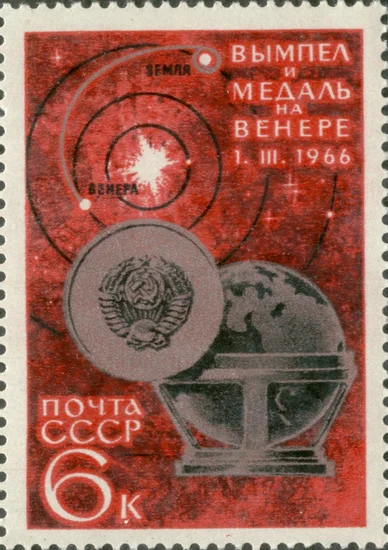
The Soviet space probe Venera 3 crashed into Venus, becoming the first human-made object to reach another planet’s surface. The historic achievement marked a significant milestone in planetary exploration.
Although the probe’s instruments failed before landing, preventing data transmission, the mission demonstrated the feasibility of interplanetary travel. The success encouraged further Soviet Venus missions and advanced space exploration technology.
2002 – Envisat Environmental Satellite Launched

The European Space Agency successfully launched Envisat, the world’s largest environmental monitoring satellite at the time. The massive satellite reached its operational orbit 800 kilometers above Earth aboard an Ariane 5 rocket.
Envisat’s advanced instruments provided unprecedented data on climate change, atmospheric composition, and environmental conditions. The mission revolutionized Earth observation science and contributed vital information for climate research.
2002 – Space Shuttle Columbia Services Hubble

NASA launched Space Shuttle Columbia on mission STS-109 to perform crucial maintenance on the Hubble Space Telescope. The complex servicing mission required multiple spacewalks to upgrade the observatory’s instruments.
The successful mission extended Hubble’s operational life and enhanced its scientific capabilities significantly. The upgraded telescope continued producing groundbreaking astronomical discoveries for years following the maintenance work.
1950 – Klaus Fuchs Convicted of Atomic Espionage
British physicist Klaus Fuchs was convicted of providing top-secret atomic bomb information to the Soviet Union during the Manhattan Project. The conviction exposed one of the most significant nuclear espionage cases in history.
Fuchs’ betrayal allowed the Soviet Union to accelerate its nuclear weapons program dramatically. The case intensified Cold War tensions and led to increased security measures in nuclear research facilities.
Cultural and Arts Events on March 1
1998 – Titanic Becomes First Billion-Dollar Film
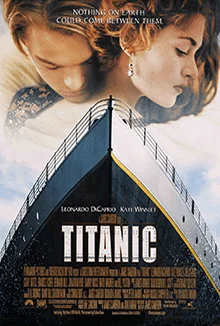
James Cameron’s epic film Titanic achieved an unprecedented milestone by becoming the first motion picture to gross over one billion dollars worldwide. The achievement shattered previous box office records and redefined commercial cinema success.
The film’s extraordinary success demonstrated the global appeal of Hollywood blockbusters and established new benchmarks for the entertainment industry. Titanic’s triumph influenced film production strategies and marketing approaches for decades.
1932 – Lindbergh Baby Kidnapped
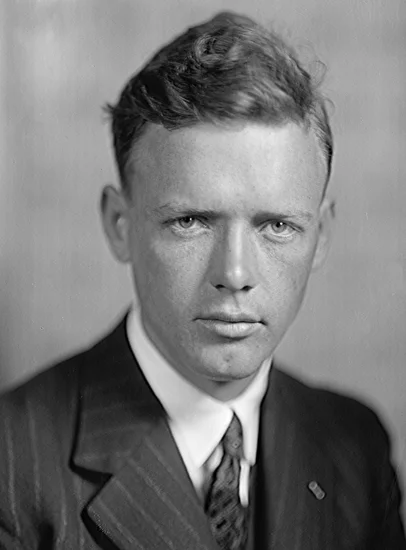
Twenty-month-old Charles Lindbergh Jr., son of the famous aviator, was kidnapped from the family home in New Jersey. The crime shocked the nation and became known as the “Crime of the Century.”
The kidnapping prompted a massive investigation and led to significant changes in federal law enforcement. The case would remain in headlines for years, culminating in the arrest and execution of Bruno Hauptmann.
1956 – International Aviation Alphabet Finalized
The International Air Transport Association completed the draft of the NATO phonetic alphabet for the International Civil Aviation Organization. The standardized system replaced various national and regional communication codes.
The alphabet’s adoption revolutionized international aviation communication by eliminating confusion between similar-sounding letters. The system remains virtually unchanged today, serving as the global standard for radio communications.
1938 – Gabriele D’Annunzio Dies
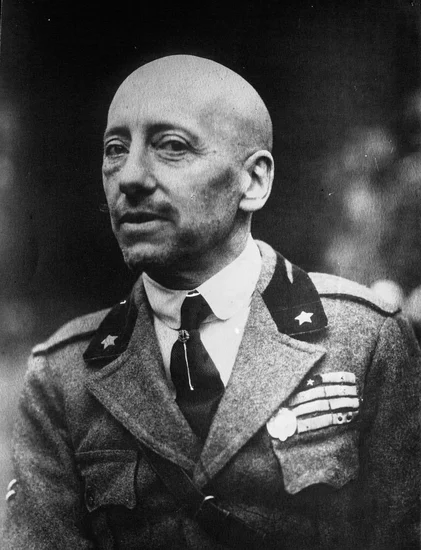
Italian poet, journalist, and nationalist Gabriele D’Annunzio passed away, ending one of the most flamboyant literary and political careers in modern European history. His death marked the end of an era in Italian cultural life.
D’Annunzio’s influence extended far beyond literature, shaping Italian nationalism and inspiring fascist ideology. His theatrical personality and controversial politics made him one of Italy’s most polarizing cultural figures.
Religious and Social Events on March 1
1958 – First American Appointed to Roman Curia
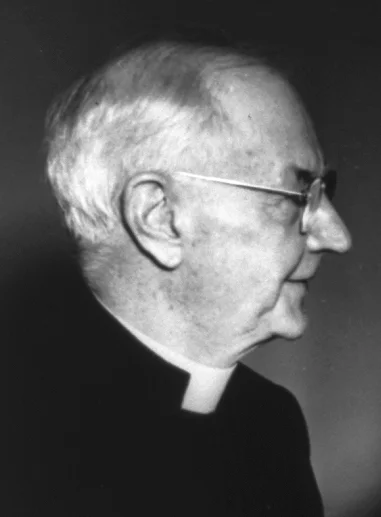
Samuel Alphonsus Stritch became the first American appointed as Pro-Prefect of the Propagation of Faith in the Roman Curia. His appointment represented a significant milestone in American Catholic Church history.
The appointment reflected the growing influence of American Catholicism within the global church structure. Stritch’s elevation marked the beginning of greater American participation in Vatican administration and policy-making.
1973 – Black September Attacks Saudi Embassy
Palestinian militants from the Black September organization stormed the Saudi embassy in Khartoum, Sudan, taking diplomats hostage. The attack resulted in the assassination of three Western hostages, including two Americans.
The embassy siege highlighted the international dimensions of Middle Eastern terrorism during the 1970s. The incident strained relations between various Arab states and demonstrated the reach of Palestinian militant groups.
1954 – Puerto Rican Nationalists Attack Capitol
Armed Puerto Rican independence activists opened fire in the U.S. House of Representatives, wounding five congressmen. The attack was intended to draw international attention to Puerto Rico’s political status.
The shooting shocked the nation and raised questions about Capitol security measures. The incident reflected ongoing tensions over Puerto Rico’s relationship with the United States and the independence movement’s militant tactics.
1910 – Deadliest American Avalanche
A massive avalanche buried a Great Northern Railway train in Washington State, killing 96 people in the deadliest avalanche disaster in U.S. history. The tragedy occurred during an unusually severe winter storm.
The disaster prompted significant improvements in railway safety procedures and avalanche prediction methods. The incident remains a sobering reminder of nature’s power and the dangers faced by early railroad workers.
Business and Economic Events on March 1
1974 – Watergate Indictments Issued
A federal grand jury indicted seven individuals for their roles in the Watergate break-in and subsequent cover-up conspiracy. The indictments marked a crucial escalation in the scandal that would topple President Nixon.
The charges included conspiracy to obstruct justice and represented the first major legal accountability for the Watergate affair. The indictments intensified political pressure on the Nixon administration and advanced the impeachment process.
1990 – Steve Jackson Games Raided

The U.S. Secret Service raided the offices of Steve Jackson Games as part of a cybercrime investigation. The controversial raid targeted materials related to a role-playing game about computer hacking.
The incident sparked outrage in the gaming and technology communities over government overreach. The controversy led to the formation of the Electronic Frontier Foundation, a major digital rights advocacy organization.
2003 – Homeland Security Department Reorganization
The U.S. Customs Service and Secret Service transferred their operations to the newly created Department of Homeland Security. The massive reorganization represented the largest government restructuring since World War II.
The transfer aimed to improve coordination between federal agencies in combating terrorism and securing national borders. The reorganization affected thousands of employees and billions of dollars in government operations.
2005 – Supreme Court Bans Juvenile Executions
The U.S. Supreme Court ruled in Roper v. Simmons that executing minors for any crime violated the Constitution’s prohibition against cruel and unusual punishment. The landmark decision affected dozens of death row inmates.
The ruling reflected evolving standards of justice and brought American law into alignment with international human rights norms. The decision sparked debates about juvenile justice and the death penalty’s application.
Transportation and Infrastructure on March 1
1910 – China Joins Universal Postal Union
China officially joined the Universal Postal Union, integrating the nation into the international postal system. The membership facilitated improved mail delivery between China and other countries worldwide.
The decision represented China’s growing engagement with international organizations despite internal political turmoil. The postal union membership helped modernize China’s communication infrastructure and foreign trade capabilities.
1961 – American Airlines Flight 1 Crashes

American Airlines Flight 1 crashed into Jamaica Bay shortly after takeoff from New York’s Idlewild Airport, killing all 95 people aboard. The tragedy shocked the aviation industry and prompted safety investigations.
The crash highlighted ongoing challenges in commercial aviation safety during the jet age’s early years. The incident led to improvements in aircraft design and airport safety procedures.
1964 – Paradise Airlines Flight 901A Crashes

Paradise Airlines Flight 901A crashed near Lake Tahoe, Nevada, killing all 85 passengers and crew members. The disaster occurred during a chartered flight carrying gamblers returning from Las Vegas.
The crash prompted investigations into charter airline safety standards and regulations. The tragedy highlighted the risks associated with smaller airlines and led to enhanced oversight of charter operations.
2006 – English Wikipedia Reaches One Million Articles
The English-language version of Wikipedia achieved the historic milestone of one million articles with the creation of the Jordanhill railway station entry. The achievement demonstrated the success of collaborative online encyclopedia creation.
The milestone represented unprecedented democratization of knowledge creation and distribution. Wikipedia’s growth challenged traditional encyclopedia publishing and transformed how people access and share information globally.
Sports and Recreation on March 1
1921 – Australia Completes Ashes Whitewash
The Australian cricket team under captain Warwick Armstrong completed a historic 5-0 whitewash victory over England in The Ashes series. The dominant performance represented one of cricket’s most one-sided series victories.
The achievement would not be repeated for 86 years, demonstrating its exceptional nature in cricket history. Armstrong’s team established Australia as the dominant force in international cricket during the 1920s.
1922 – Pichichi Dies

Rafael Moreno Aranzadi, known as “Pichichi,” died at age 29, ending the career of one of Spanish football’s greatest early stars. The Athletic Bilbao striker had become Spain’s most prolific goal scorer.
His death led to the Spanish football league naming its top scorer award “El Pichichi” in his honor. The award continues today as one of Spanish football’s most prestigious individual achievements.
1925 – Homer Plessy Dies
Homer Plessy, the civil rights activist whose legal challenge led to the infamous “separate but equal” doctrine, passed away in New Orleans. His 1896 Supreme Court case had profound implications for American civil rights.
Though Plessy lost his case, his challenge to segregation laws laid groundwork for future civil rights victories. The Plessy v. Ferguson decision would stand until Brown v. Board of Education overturned it in 1954.
1964 – Villarrica Volcano Erupts

Chile’s Villarrica Volcano began a powerful strombolian eruption that generated destructive lahars flowing down the mountain slopes. The volcanic mudflows destroyed half of the town of Coñaripe.
The eruption demonstrated the ongoing volcanic hazards facing communities near active volcanoes in Chile’s Andes Mountains. The disaster prompted improvements in volcanic monitoring and emergency response procedures.
Notable Births on March 1
1904 – Glenn Miller Born

American trombonist and bandleader Glenn Miller was born in Clarinda, Iowa, destined to become one of the most influential musicians of the swing era. His early musical education laid the foundation for his revolutionary approach to big band arrangements.
Miller would later create the distinctive “Miller Sound” that dominated American popular music in the late 1930s and early 1940s. His orchestra’s recordings became timeless classics, and his mysterious disappearance during World War II added to his legendary status.
1914 – Harry Caray Born

Baseball broadcaster Harry Caray was born in St. Louis, Missouri, beginning a life that would make him one of America’s most beloved sports personalities. His distinctive voice and enthusiastic style would captivate baseball fans for decades.
Caray’s famous “Holy cow!” exclamation and seventh-inning stretch performances became integral parts of baseball culture. His broadcasting career spanned multiple teams and generations, making him a national treasure in American sports.
1922 – Yitzhak Rabin Born

Israeli military leader and future Prime Minister Yitzhak Rabin was born in Jerusalem during the British Mandate period. His birth occurred during a pivotal time in the region’s history, shaping his future role in Israeli politics.
Rabin would later serve as Israel’s fifth Prime Minister and win the Nobel Peace Prize for his efforts to achieve peace with the Palestinians. His assassination in 1995 shocked the world and marked a turning point in Middle Eastern politics.
1927 – Harry Belafonte Born

American singer and actor Harry Belafonte was born in New York City to Caribbean immigrant parents. His multicultural background would profoundly influence his artistic career and social activism.
Belafonte would become known as the “King of Calypso” and use his fame to champion civil rights causes. His rendition of “Day-O (The Banana Boat Song)” became a cultural phenomenon and helped introduce Caribbean music to mainstream America.
1954 – Ron Howard Born

American actor and director Ron Howard was born in Duncan, Oklahoma, beginning a career that would span from child actor to Academy Award-winning filmmaker. His early exposure to entertainment would shape his lifelong passion for storytelling.
Howard would transition from beloved television actor on “The Andy Griffith Show” and “Happy Days” to acclaimed director of films like “A Beautiful Mind” and “Apollo 13.” His career represents one of Hollywood’s most successful transformations from performer to filmmaker.
1994 – Justin Bieber Born

Canadian singer Justin Bieber was born in London, Ontario, destined to become one of the most successful pop artists of the 21st century. His musical talent would be discovered through YouTube videos posted by his mother.
Bieber’s rise to fame represented the power of social media in launching music careers. His success demonstrated how digital platforms could bypass traditional music industry gatekeepers and create global superstars.
Notable Deaths on March 1
1911 – Jacobus van ‘t Hoff Dies
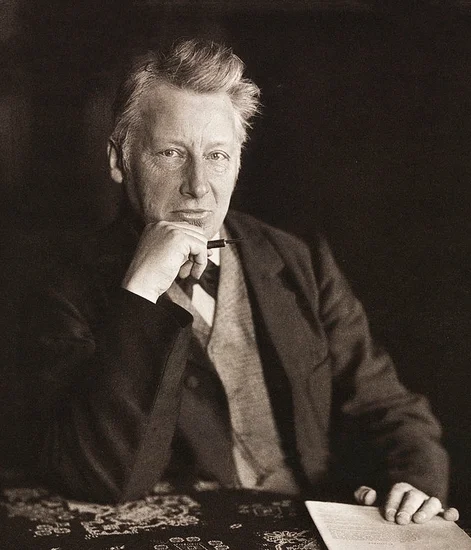
Dutch chemist Jacobus Henricus van ‘t Hoff passed away, ending a career that revolutionized the understanding of chemical processes. His groundbreaking work in physical chemistry earned him the first Nobel Prize in Chemistry in 1901.
Van ‘t Hoff’s research on chemical equilibrium and reaction rates laid the foundation for modern chemical kinetics. His contributions to stereochemistry and solution theory continue to influence chemical research and industrial applications worldwide.
1936 – Mikhail Kuzmin Dies

Russian poet and author Mikhail Kuzmin died in Leningrad, concluding a literary career that bridged the gap between 19th-century Russian literature and Soviet-era writing. His works challenged conventional moral and artistic boundaries.
Kuzmin’s novel “Wings” was one of the first Russian works to openly address homosexuality, making him a pioneer in LGBTQ literature. His poetry and prose influenced generations of Russian writers despite official Soviet disapproval.
1983 – Arthur Koestler Dies
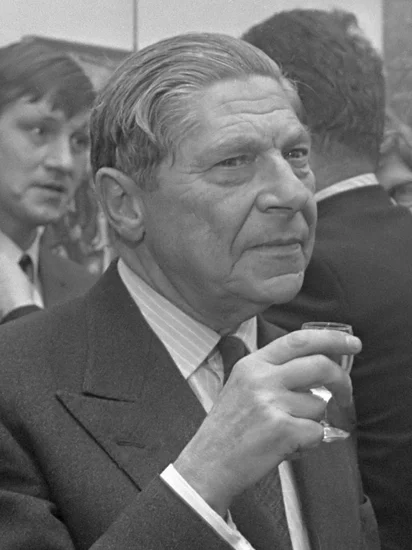
Hungarian-British author Arthur Koestler died in London, ending a life devoted to exploring the intersection of politics, science, and human nature. His experiences as a former Communist turned him into one of totalitarianism’s most effective critics.
Koestler’s novel “Darkness at Noon” became a classic of anti-totalitarian literature, exposing the psychological manipulation used by authoritarian regimes. His work influenced Western understanding of Communist ideology and practice during the Cold War.
1991 – Edwin Land Dies
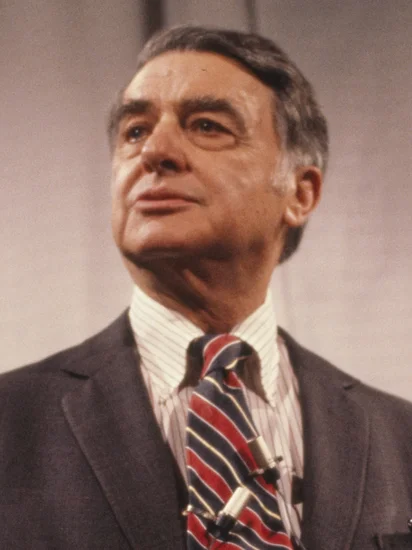
American inventor Edwin Land passed away, concluding a career that revolutionized photography and optics. His invention of instant photography transformed how people captured and shared memories.
Land founded the Polaroid Corporation and held over 500 patents for his innovations in light polarization and photography. His instant cameras became cultural icons and changed the social dynamics of photography by enabling immediate image sharing.
2014 – Alain Resnais Dies

French filmmaker Alain Resnais died in Paris, ending a career that redefined cinema through innovative narrative techniques and explorations of memory and time. His films challenged conventional storytelling and influenced generations of directors.
Resnais’s masterpiece “Hiroshima Mon Amour” revolutionized film language by interweaving personal memory with historical trauma. His experimental approach to editing and narrative structure helped establish the French New Wave movement.
Holidays and Observances on March 1
Saint David’s Day

Wales celebrates Saint David’s Day, honoring the patron saint of Wales with traditional festivities throughout the country. The holiday commemorates Saint David, a 6th-century monk who became Wales’s most important religious figure.
Welsh communities worldwide observe the day by wearing daffodils or leeks, traditional Welsh symbols. The celebration includes cultural events, traditional Welsh food, and expressions of Welsh national identity.
Independence Day of Bosnia and Herzegovina

Bosnia and Herzegovina celebrates its independence from the Socialist Federal Republic of Yugoslavia, achieved in 1992. The holiday marks the country’s emergence as a sovereign nation following a referendum on independence.
The celebration occurs amid ongoing efforts to build national unity among the country’s diverse ethnic communities. The day represents hope for continued peace and democratic development in the Balkans.
Samiljeol
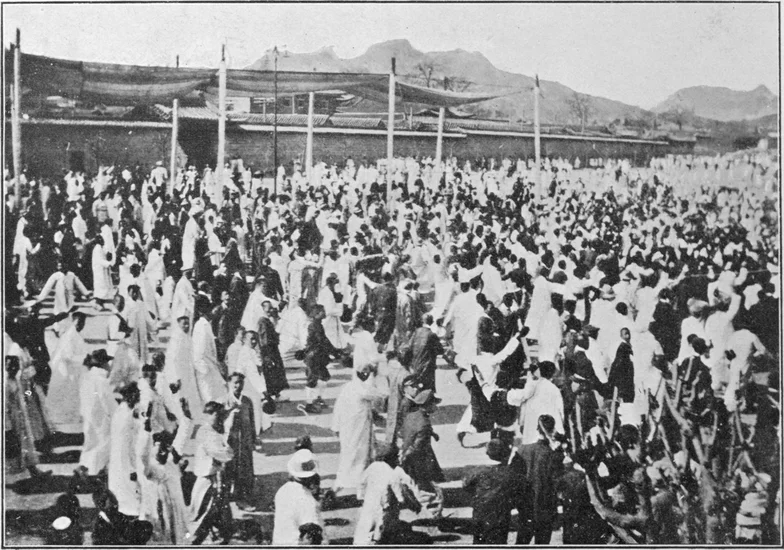
South Korea observes Samiljeol, commemorating the March 1st Independence Movement of 1919 against Japanese colonial rule. The holiday honors the peaceful protesters who demanded Korean independence and self-determination.
The observance includes ceremonies at independence monuments and educational programs about Korean history. The holiday reinforces Korean national identity and remembers the sacrifices made for independence.
Zero Discrimination Day
The international community observes Zero Discrimination Day, promoting equality and human rights for all people regardless of their background or identity. The day encourages action against discrimination in all its forms.
Organizations worldwide use this day to raise awareness about discrimination issues and promote inclusive policies. The observance emphasizes the universal right to live with dignity and respect.
National Pig Day
The United States celebrates National Pig Day, recognizing the intelligence and importance of pigs in agriculture and society. The holiday was created to give pigs the respect they deserve as intelligent animals.
The day includes educational activities about pig intelligence and their role in sustainable agriculture. Many farms and educational institutions use the occasion to promote better understanding of livestock and farming practices.
